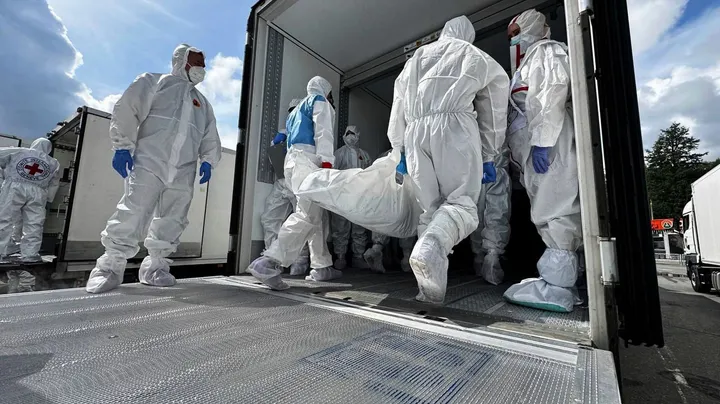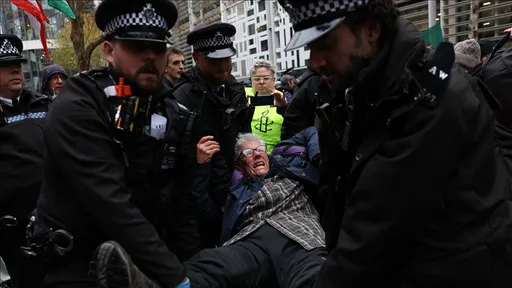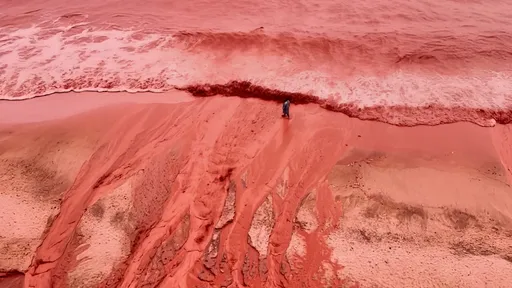Russia's army admiral stationed in Syria, Oleg Zhuravlyov, recently warned that the ports of Latakia and Tartus were likely to be attacked by armed groups from the opposition-held Idlib province, citing an intelligence report shared by the Syrian regime.
Russian forces had earlier come up with similar panic-inducing statements saying that the Mediterranean harbours on the Syrian side were susceptible to underwater bombings.
In light of these statements, the command of the Russian Khmeimim Air Base organised a 24-hour patrol of the Latakia port and its surrounding areas.
According to some reports, forces loyal to the Syrian regime are also involved in the patrols. And the movement of the units will be monitored by Russian Air Force drones, according to Zhuravlyov.
Russian patrolling coincided, however, with Israeli missile attacks targeting areas near the port of Latakia. For the first time in the history of the civil armed conflict in Syria, the Israeli army began striking in close proximity to Russian military bases.
In a show of strength, Russia responded with a joint military exercise alongside Assad's forces close to the Israeli-occupied Golan Heights. In the first event of this kind, Russian Air Force and Assad's fighter jets flew along the Golan Heights, covering its southern borders, along the Euphrates River, all the way up to northern Syria. The Russian side reportedly deployed Su-34 and Su-35 fighters and A-50 long-range radar detection and control aircraft.
Exercise season
A few weeks before the Israeli missile attacks unnerved Russia, Moscow conducted military exercises with the Syrian regime's air defence unit. The exercises included aerial and ground drills to counter enemy aviation and the use of Soviet-Russian Strela-2, shoulder-fired, surface-to-air missiles.
Meanwhile, in southern Syria, there was a complex tactical exercise led by the Russian military in which they practised a scenario similar to the one that took place during the opposition uprising in the Daraa province last year, when rebel forces took over a village.
Alexei Zakharov, a representative of the Russian troops in Syria, recreated the scenario for training purposes, using simulated enemy fighters and dummy fortifications of their positions.
The Russian instructors then used the Syrian regime fighters as a tactical group and mixed tactical group, and deployed a mixed artillery group along with multiple rocket launchers, a battery of mortars, and tank units.
Drones were also used in the process of guiding multiple rocket launchers to identify the target and determine the number of enemy fighters on the other side of the terrain.
An external threat
Talking to TRT Russian, military expert Yuri Lyamin did not rule out the fact that the start of joint patrols in the port of Latakia could be linked to Israeli strikes, among other things.
"On the one hand, this should somewhat reassure the local population, who are alarmed by these bombings and the emerging rumours of spies and other [such] things. On the other hand, such patrols naturally make it harder for Israel to strike at this time," the analyst explained.
As for all sorts of military manoeuvres, however, Lyamin noted that there could hardly be any political background in this case.
"This is just one of the usual periods for intensive exercises that take place in different countries. In Russia, for example, there is a winter training period going on right now. It is logical that our advisers in Syria have intensified training now as well," the expert explained.
Fred Hough, former Special Representative of the US Department of State for the Political Transition in Syria, commenting to TRT Russian on the threats to the port in Latakia, did not completely reject the scenario of attacks from Idlib, but noted that the search for intelligence data is not something that the Syrian security services are brilliant at.
"One cannot rule out the possibility that these reports will be used to justify a bombing campaign by the regime and [that] Russia will focus mainly on civilian targets in the Idlib area," the expert explained.
Commenting on the Russian-Syrian exercises, the former diplomat pointed out that the Syrian regime's army lacks professionalism and basic combat capabilities.
"In the past, Russian officers had to intervene to prevent the Syrian military from stealing medicine and food from UN humanitarian convoys," Hough recalled.
“[Undoubtedly] Russia feels an urgent need to train an army that has been completely overshadowed by the Iranian-led police because of its incompetence."
























